🦿✨The Nexialist #0179
#tnwconference | cyborg art | artificial imagination | collective intelligence | social health | data-driven DEI | genAI in education | healthtech | capitalism 2.0 | urban future | decarbonizing earth
welcome to your weekly batch of bite-sized brainsparks, the nexialist
hey, you! i hope this message hides you well (go read it in a corner where no one can find you, if that’s your vibe). tropikali was incredible last weekend as it kicked off the dutch summer, and i had the pleasure of sonically bringing people to a brazilian carnaval for nearly two-hours (here is the playlist).
last week i had my first nexialist gig as “press” at the next web conference, the heart of tech, a two-day conference in amsterdam to talk about the future of technology—hopefully better than we have them today. the venue was incredible, just 45 minutes by ferry outside of amsterdam, with lots of green, hammocks, (surprisingly) nice food and lots of inspiring talks. i selected the 10 topics that caused me brainsparks to share with you this week. the e-mail will be too long, so you might need to go to the browser to read the full e-mail. I apologize in advance for the bad-quality photos, but let’s focus on the content.
also, recently i lowered the subscription price to the nexialist. so this week, i invite you to consider going paid (or a one-time contribution), to support the hard work (and love) i put here every week. if you can’t, keep supporting by reading, sharing, liking… all of this makes a difference. thank you so much and enjoy! 🫀✨
1 year ago » 🧚♂️✨The Nexialist #0127 : self-fulfilling cyberpunk | cypherpunk, solarpunk and lunarpunk | gambiarra > kludge | beyond the sea | the alpha male myth | colonial masculinity | male objectification through the ages
2 years ago » i was on a break 👙
3 years ago » 👁✨The Nexialist #0026 : Discriminator | Cyberpunk in Brazil | Third Eye(lid) | Eye Floaters | Distorted Light Beam | Shygirl's BLU | Sad and Horny | More Rita Lee
🦾cyborg art
i’ve known about moon ribas’ work for almost a decade, but i had never seen her talking about her work, or performing live, so i was mesmerized. she started the second day of the event, but was the one who rented a penthouse in my mind.
moon ribas is one of the founders of the cyborg foundation, together with neil harbisson (tn#11). she defends the right to be a cyborg and design your own perception of reality. moon also said being a cyborg is an identity, and perhaps some of us are already cyborgs even without having implants or body modifications. for instance, a psychological cyborg: when my phone is low on battery, i feel low in energy (i have to say i might relate to that).
moon ribas used to have a tech-enabled seismic sense: an implant in her leg which would vibrate anytime there was an earthquake, anywhere on earth, hence her cyborg identity. one of her performances would be standing in a museum, waiting for earthquakes to happen, and then dance based on those vibrations. a duet with earth where earth is the choreographer and she is the dancer. living with this implant for years made her realize how much the earth moves and is alive.
her performance at tnw was another duet, but in this one earth was the composer and she was the musician. she took the records of earthquakes in the mediterranean sea and made a musical chart (seen in the above photo). on stage, she performed it with the drums. it was quite a powerfull way to show how these natural events are ocurring more frequently and intensely, without actually having to say it, but making us feeling it.
what also stayed with me is how she gave plenty of examples of other cyborgs in her community who use technology to feel closer to nature, just as herself, and use their cyborg abilities to sense and even help earth. we tend to put technology and nature as opposites, but technology can be a tool to bring us closer to nature.
brainsparks: neil harbisson, vibration cyborg (tn#11), linear opposites or closely related? (tn#126), mechanomorphism (tn#118)
💭artificial imagination
jeroen van der most is a dutch artist who “has created art with data, algorithms, and AI since 2010.” he told us how he found out a mysterious painting signed with his name (but not made by him) was sold by 3.2 million dollars in saudi arabia, and this his quest to find wtf was happening. he also shares what he’s learned in the process.
he showcased some of his art (including a device that created ads on the spot using ai), showing how art is always evolving. he said something that might be controversial: art is becoming less about the craft and more about the idea. and i see how this shift is causing quite a lot of commotion. he also said, “we can use these technologies to maintain humanity,” echoing what moon ribas said. below the 3 points from his presentation about how he sees art and artificial imagination:
Be unbound
The most interesting tech crushes conceptual boundaries
Nothing beats a good human story
brainsparks: centaur mindset (tn#106), artisanal intelligence (tn#149), ARTificial (tn#123), hyperindustry of the artificial imaginary (tn#118), art ft tech (tn#17)
🧠maximizing collective intelligence
vivienne ming, who defines herself as a professional mad scientist, was one of my favorites. she is a neuroscientist and ai expert. in a panel i had attended before, “humanism: the philosophical debate for ai ethics,” she said something that stayed with me. when asked about how to decide if we should use/implement a certain technology, her answer was:
There are two question we should ask ourselves:
1. Does this make me better?
2. Am I better when I turn if off? If not, I'm not interested.
she compared this experience to the use of digital maps. we get so used to it, that we forget to exercise our spatial awareness. and this actually has negative effects on our neural health.
for this presentation about maximizing collective intelligence at work, i was late. but she was sharing how to the worst thing you can do for any team, is to hire people that think alike (aka no diversity). according to ming’s research (i tried to unsuccessfully find a link), in this dynamic people are less intelligent/innovative, because they settle for less as they echo each other (even if they are brilliant individually). she talked about this paradox between trust and diversity, which teams need to balance.
brainsparks: scenius aka communal genius (tn#31), collective effervescente, egregore (tn#11)
🫂social health
i’m that person that loves the future of relationships talks, and it can be a hit-and-miss in these conferences. i was happy i went to see renate nyborg, the founder & ceo of meeno, an app that uses ai to help with relationship advice (one in three men ask chatgpt for relationship advice… i’m still thinking about this).
renate brought some examples and data on how human connection is growing in two directions: virtual and irl. here are some of them:
social health: “Research has proven that social health – wellbeing that comes from connection – is as essential as food and water, but it is vastly underappreciated.”
people have fewer closer friends, something called the friendship recession.
boomers are the main growing demographic in apps like tinder and feeld.
ai companions top the genAI category. (could not find the link)
GenZ are championing “disconnect tech:” point and shoot cameras, flip phones.
breeze: the app that focuses on dating irl. after you match with someone, you only get a message for the place and time for the date. you cannot match with anyone else while this date has not happened. a way to slow down the swiping.
brainsparks: artificial intimacy (tn#168), non-toxic social media (tn#121), Business Needs New Frameworks (tn#68)
📈data-driven diversity and inclusion
i arrived at this panel by chance, and got a nice report from it. leaders from different companies talked about how to leverage data to foster diversity and inclusion. they release a report about it (haven’t seen it yet, but the talk was quite interesting).
ingrid tappin managed the panel, and i loved how she was quite direct asking the other leaders how they were working DEI in their teams. they talked about recognizing and aknowledging the people in the team, promoting them (if that’s what they want), and understanding what they need. something that stayed with me, shared by adrienne enggist from booking.com:
sometimes, people are not assholes on purpose. the company has also the role to (at least try) to train and help people who are adapting to function in this new environment.
another person on the panel just suggested firing all the assholes.
brainsparks: Business Needs New Frameworks (tn#68), future creatives report (tn#147)
🧑🏫genAI in education
i went on a couple conversations about the education, as it’s quite a controversial topic (here in the netherlands they banned phones in schools recently, for instance). one talk was with chegg’s dan rosensweig about ai and personalization, and one about genAI en education and workforce, with coursera’s jeff maggioncalda. no photos from these, but some thoughts from jeff:
-GenAI for university leaders, in coursera.
-How do I use AI as a thinking tool? How do I use this to sharpen my thinking?
-AI is not a search engine. Use it as a thought partner.
brainsparks: ai homework (tn#151), low tech zones, screen for kids (tn#135),
🏥healthtech
all the panelists in this talk were all quite excited about emerging tech for the health sector. the problems in the health system are widespread: aging populations, inequality in health (who gets better outcomes usually have more money), staff shortages and inefficencies (lots of money spent, and not catching up). healthcare is stuck in an analog world.
they had quite an optimist talk on how technology can (and already is) being used to bridge the gap between physicians and patients to improve outcomes. for instance, level ex gamifies healthcare training or games to help treat adhd. one of the panelists was from invisalign, sharing how they use ai and imaging to make personalized “braces” saving the patient’s and the healthcare professional’s time.
another example shared was how genAI can help decrease the administrative burden. previously it would take several minutes to check the file of a patient, and genAI can make a file in less than a minute.
brainsparks: queer health (tn#141)
🌐capitalism 2.0
i was quite skeptic to watch this one: “capitalism 2.0 and the pivotal role of tech: rethinking profit, ownership and competition”— because i have a FOC (fear-of-consultancies). it was presented by sebastian kortmann (university of amsterdam) and igor mikhalev (ey-parthenon).
it turns out it was quite a nice presentation, full of nice slides, in an effort to explain—especially to the ppl on top— why our current model of capitalism is not working (i.e.: maximizing profit comes at the cost of social welfare). and some (very well structured) ideas on how businesses can move forward. it also sparked nice conversations in the room, as they opened for 10 minutes for q&a. i leave with some other slides (i have more but the newsletter was getting too long).
brainsparks: how individualism undermines systemic change (tn#141), what is capitalism really? (tn#69), solarpunk and the end of capitalist (tn#40)
🌇urban future
oleg polovynko, adviser to the mayor of kyiv on digitalization, shared kyiv’s superapp with the audience, misto. (i could not find much about it online, except for this). it has different features: from transport card and itineraries, to poll voting and more recently, emergency alerts, air raid notifications and escape-routes/shelters. geolocation even works offline and off-google-maps. urban planners and leaders can get insights from it, but also it offers services to the citizens. it was just interesting to see an app being used to protect the citizens, and also such a clear interface with so many services.
brainsparks: city, megasculpture (tn#83), rurbanization (tn#1144)
🌳decarbonizing earth
there quite a lot of talks on climate, but i only went one a few. this panel was quite interesting because it had people from different industries sharing their thoughts and experience. some of them are below:
Decarbonizing is not one or other techs/solutions. We need to do all of the above. We are already late.
Decarbonization is a journey. The whole chain needs to be studied and changed. — Lubomila Jordanova
Technology will not save it all. Policy needs to be implemented.
Carbon removal needs to be included in the business model.
Scope 1, 2 and 3. Help suppliers from all scopes to switch to renewable, otherwise it does not work.
Financial encouragement, grants that become investments. Success model.
brainsparks: carbon colonialism (tn#124), natural capital (tn#122)
🤓busy girls
loving the camp ep by tove lo, heat. this video is everything, the gender bending of it all is so exciting. after such busy couple of weeks and going on vacations, it’s the perfect tune to wrap this nexialist with.
see you next week, busy gurls 🫀✨
❓Wait, what is a Nexialist?
🔎If you want to see what I’ve already posted, visit the archive and use the search engine. Even I do that a lot.
💌I want to know what you think/who you are! Your feedback is highly appreciated; you can e-mail me or fill in this short survey. Thank you! 🙏🏻
🔌Let’s Collab?
I truly believe innovation comes from bringing improbable areas together, and that’s why I called this project The Nexialist. Some sectors are known to be self-referencing and hermetic. Sometimes, teams are on autopilot mode, focused on the daily grind, which hinders innovation. As a Nexialist, I like to burst these bubbles, bringing references from different areas, and maintaining teams inspired and connected to the Zeitgeist.
I offer inspiration sessions called Brainsparks, creative desk research (Zeitgeist Boost), Plug’n’Play deals for workshops and sprints, and other bespoke formats. If you want to know more about this, send me an e-mail with your challenge(s) and we can figure something out together. Check out my website and some work I’ve done below:





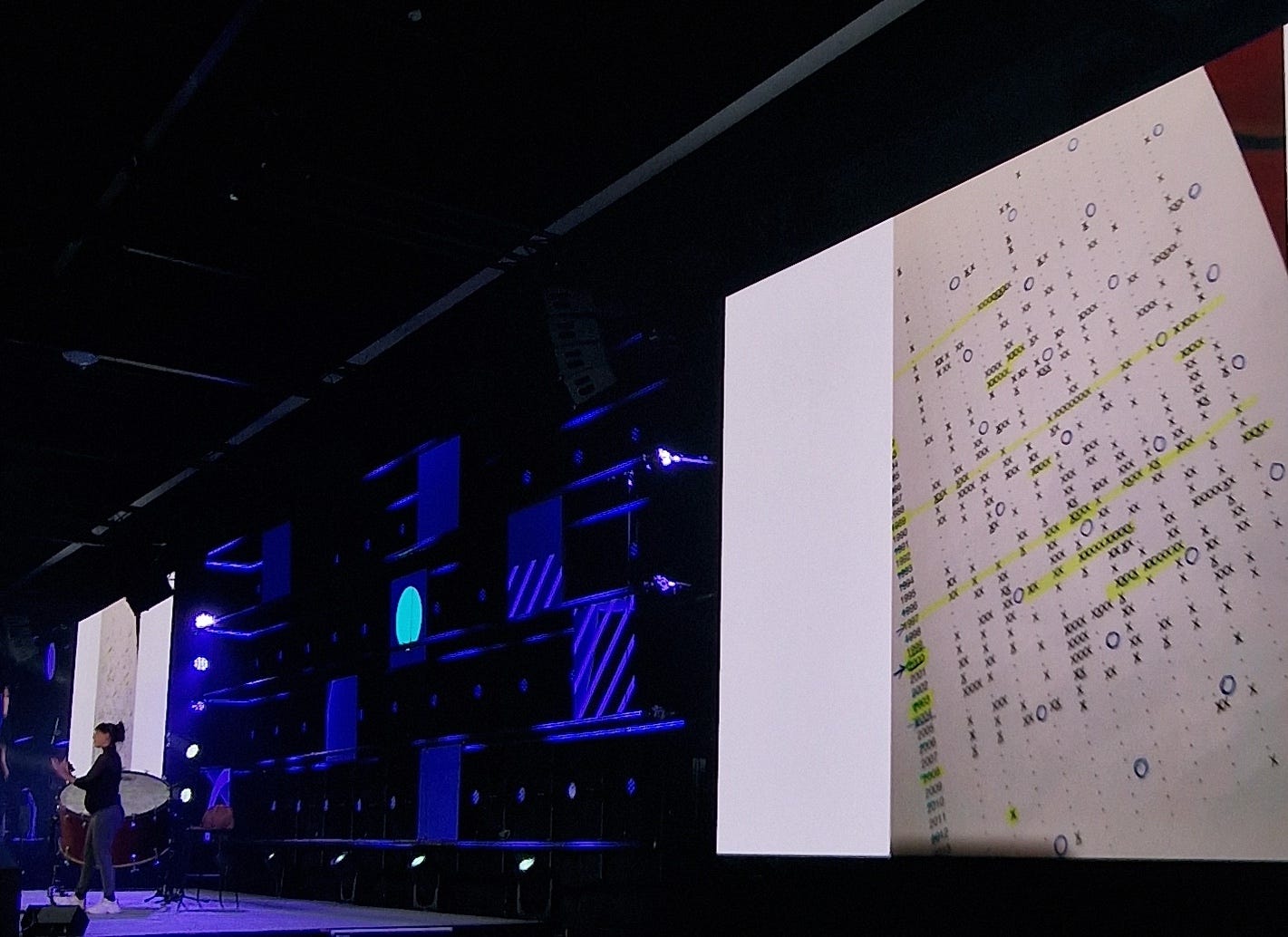
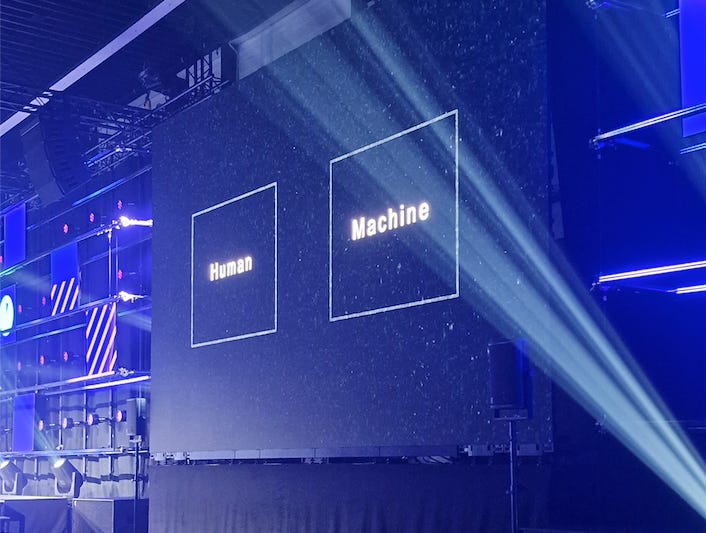
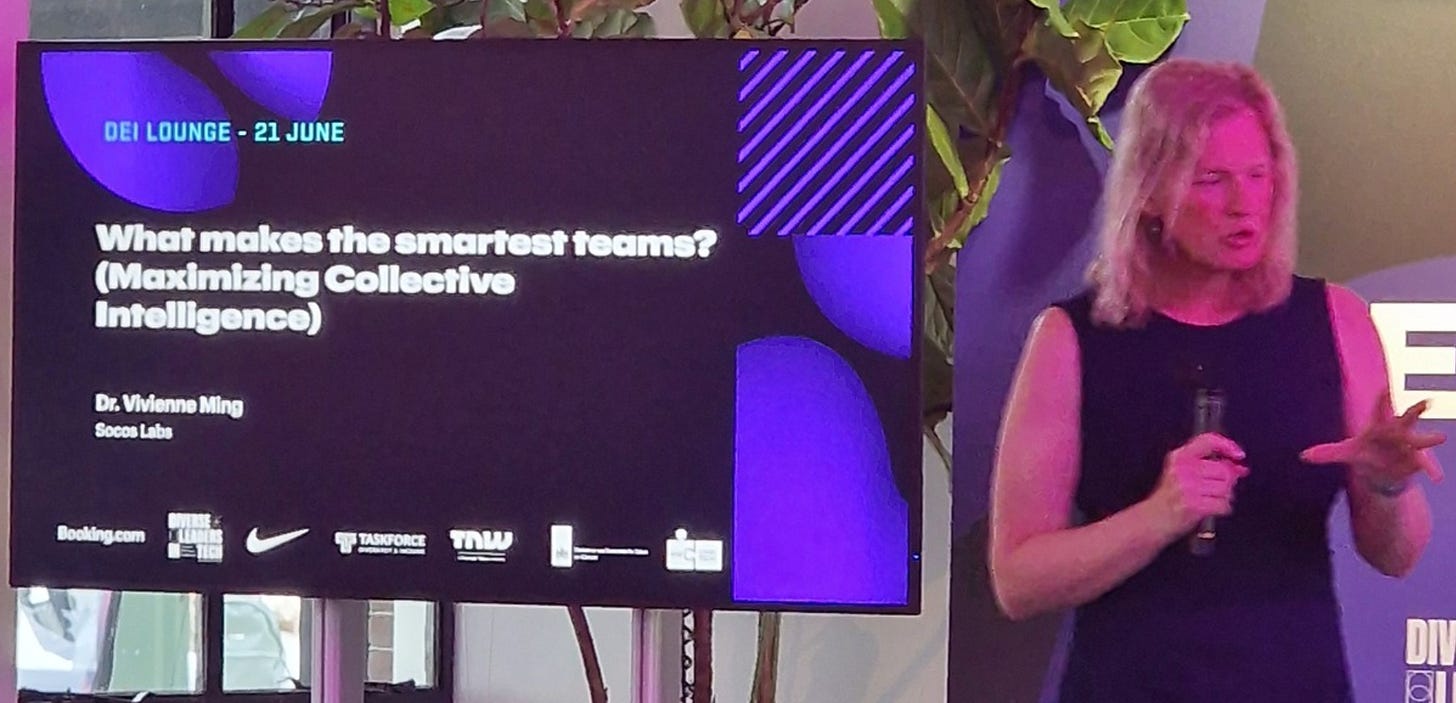
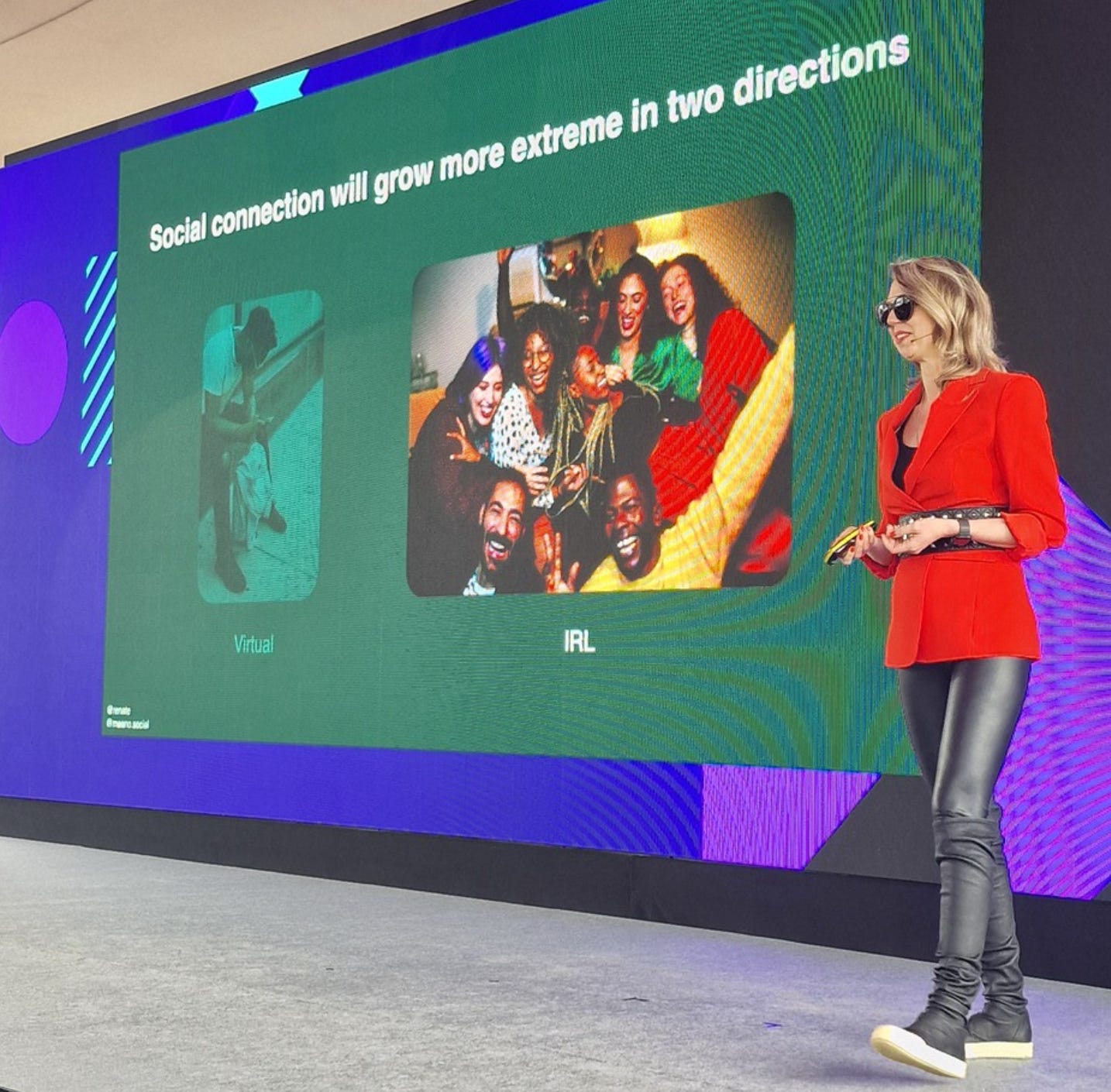
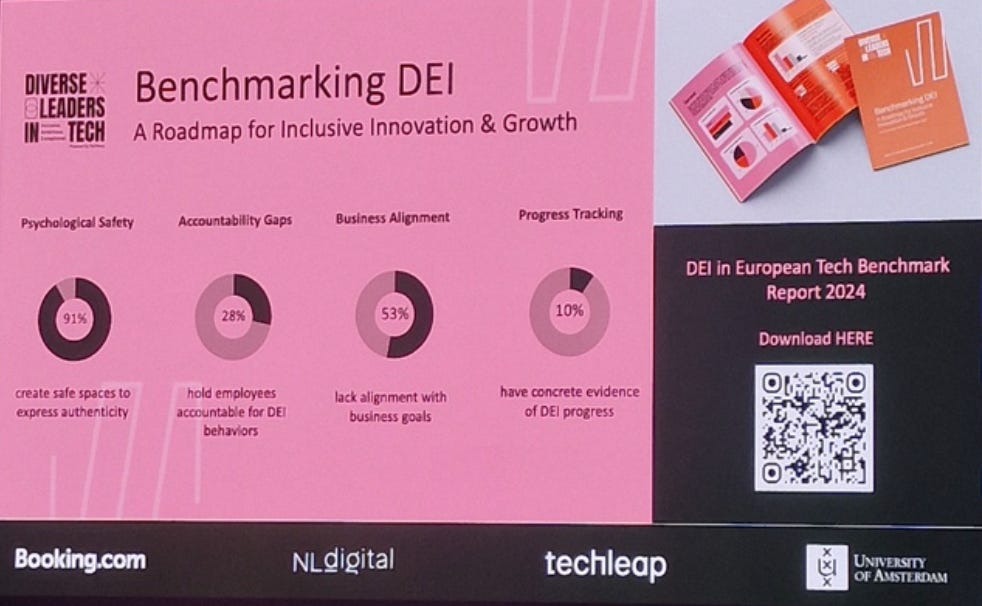
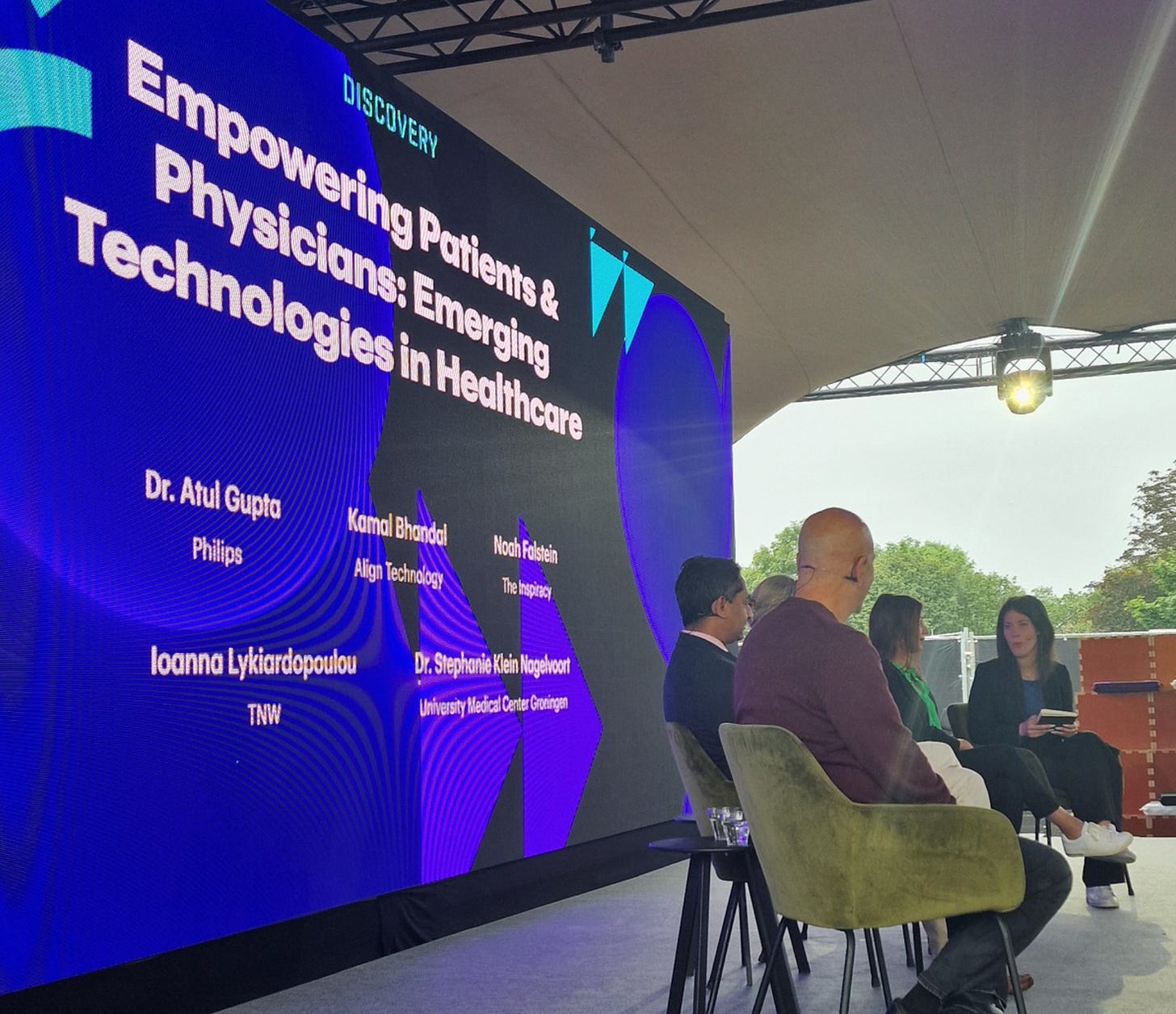
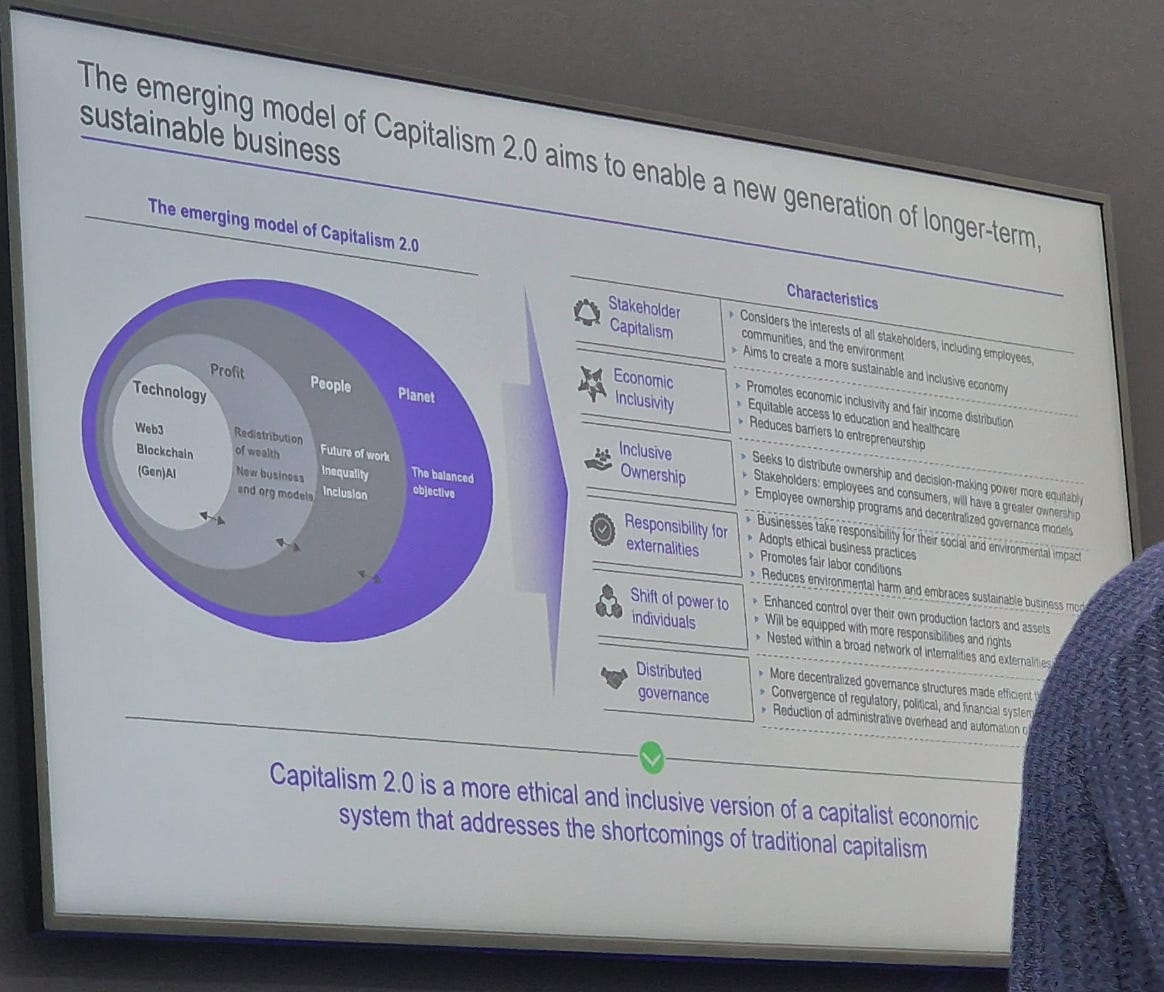
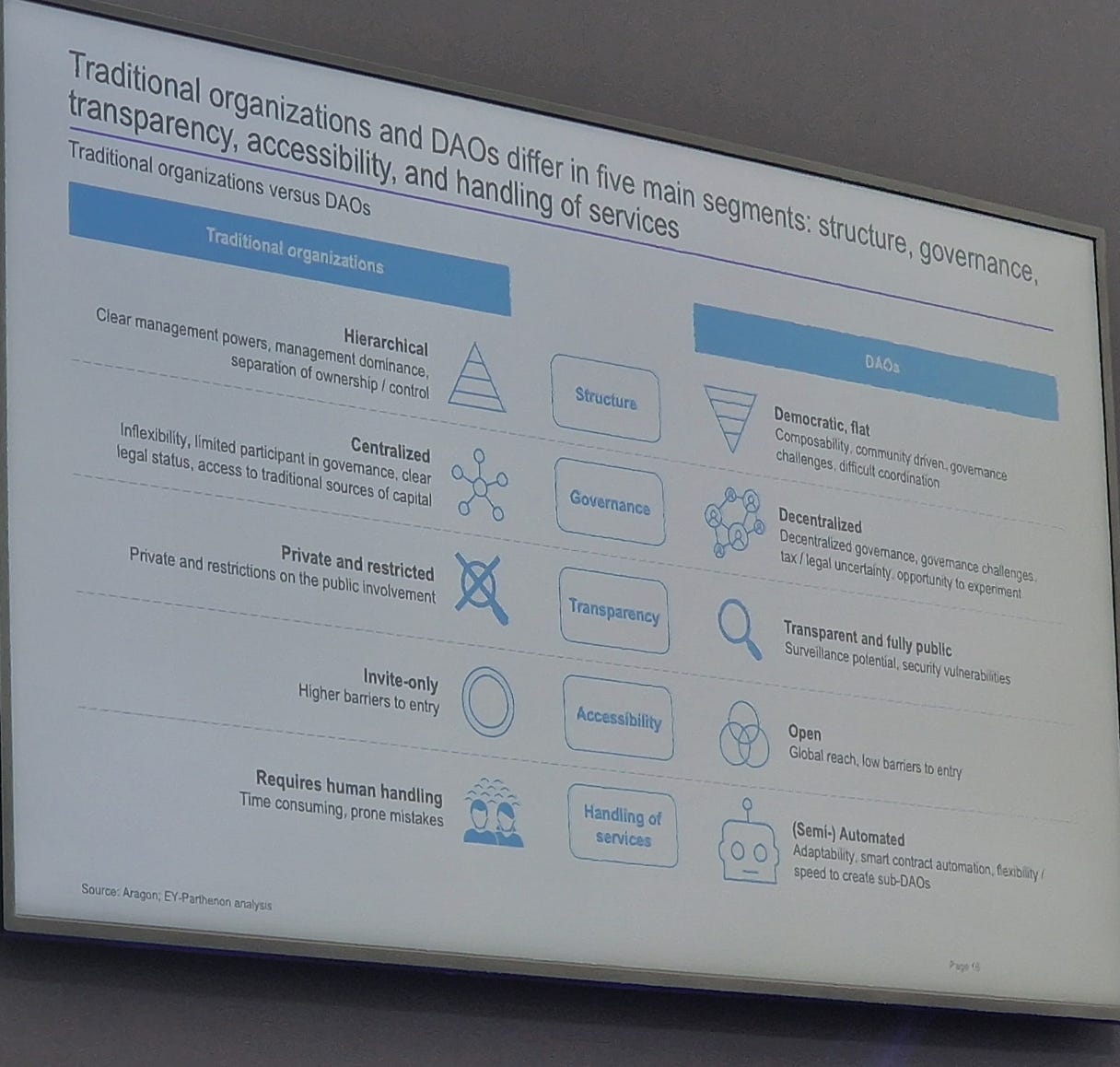
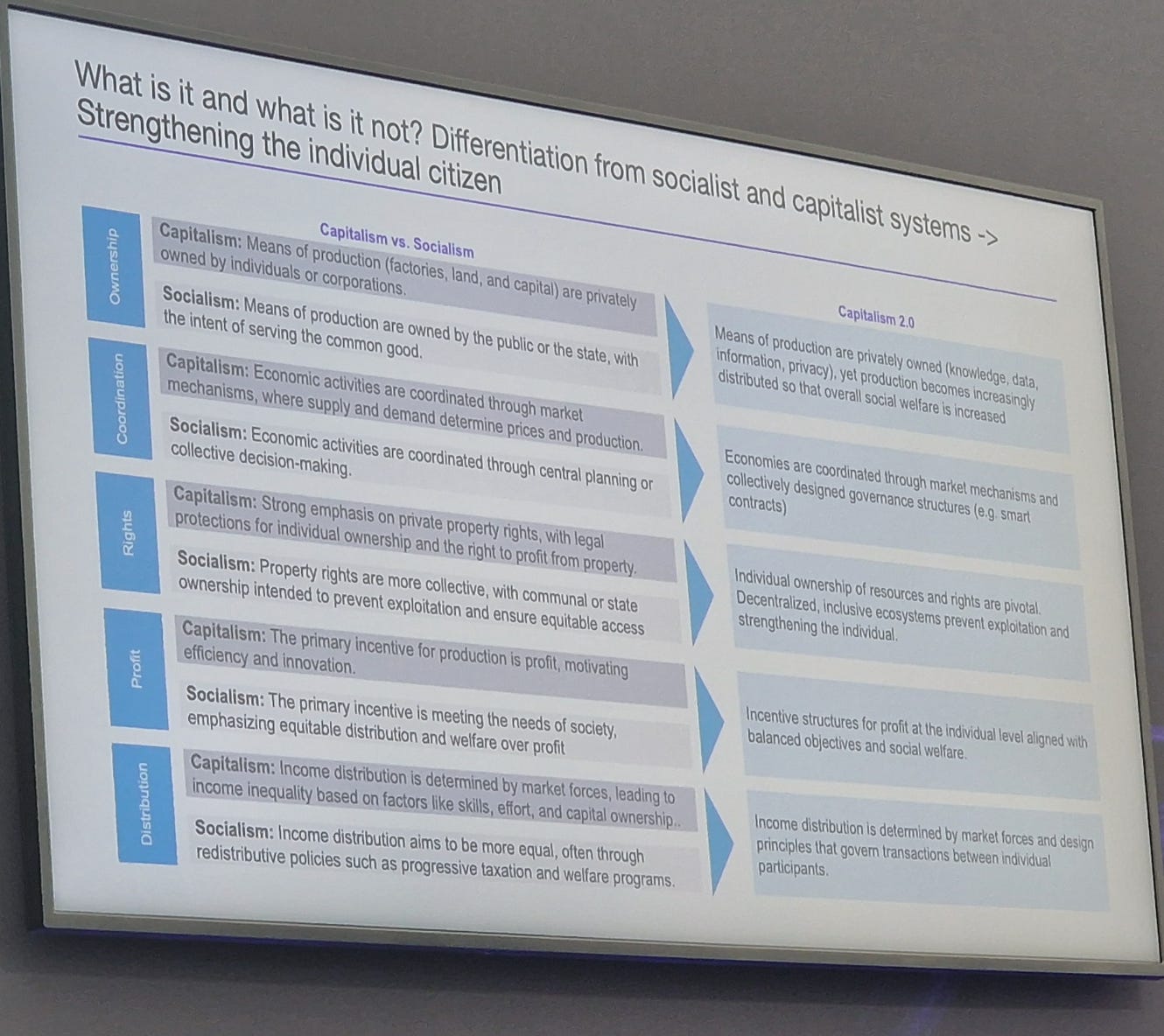
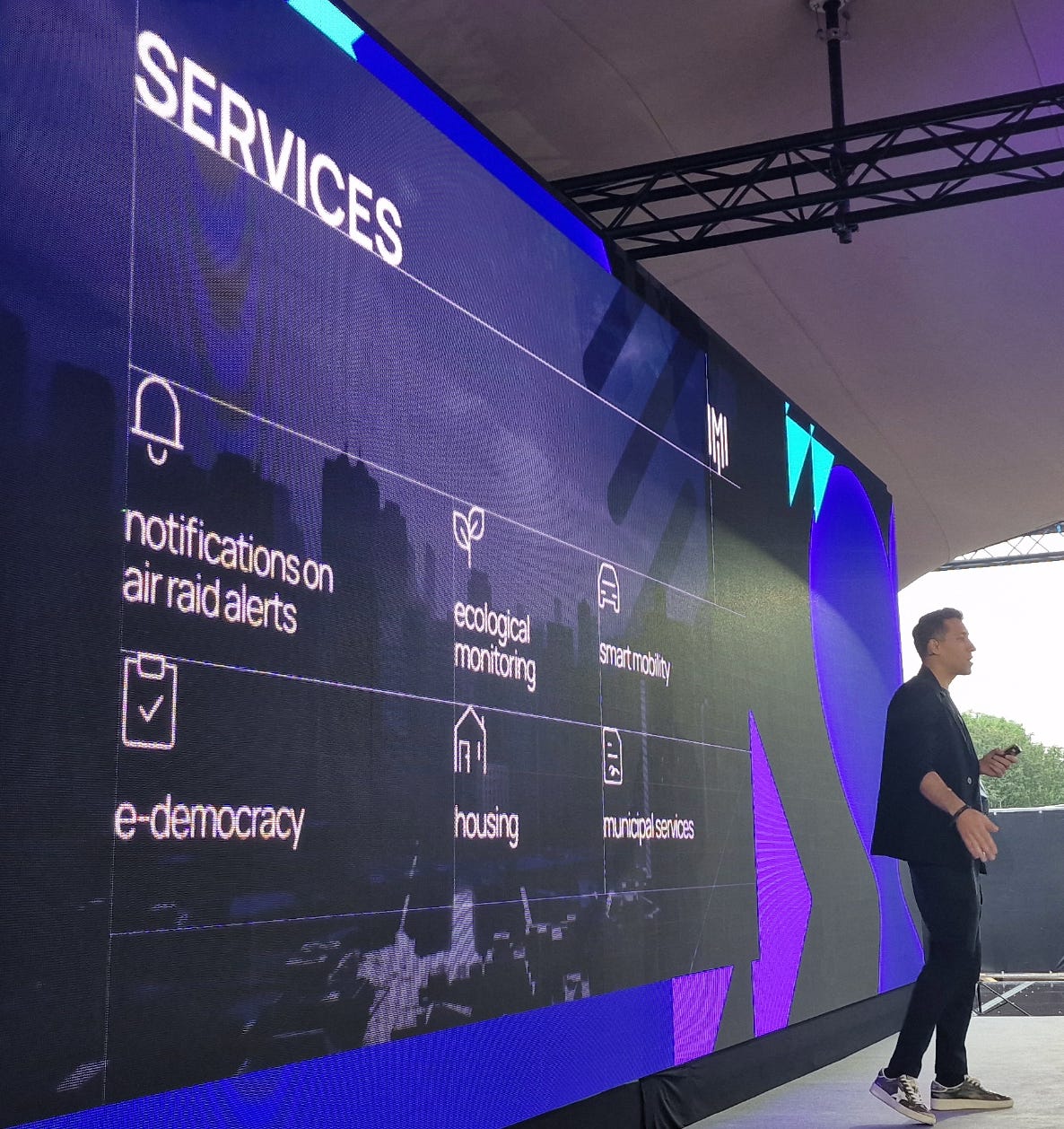

Adorei! Um monte de referências, várias coisas pra comentar, mas eu amei o FOC. Hahahhaha. Anotado aqui, sinto o mesmo.